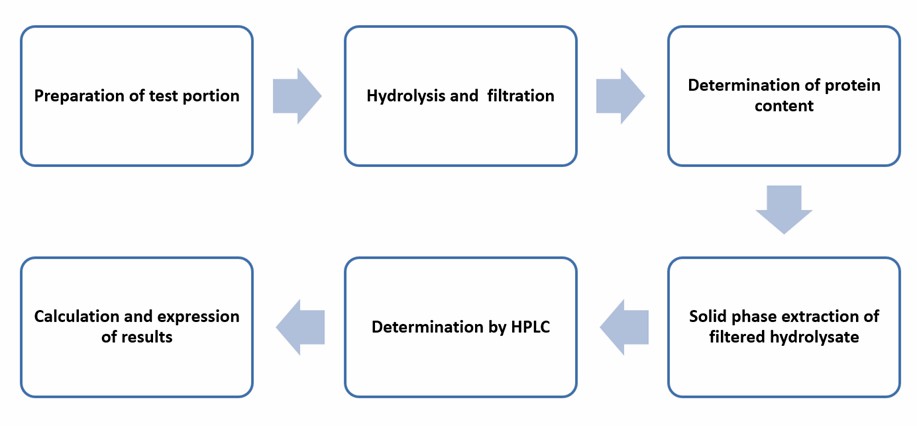Determination of furosine (ε-furoylmethyl-lysine) in milk and milk products is required, and Lifeasible offers furosine determination services using methods that comply with international standards.
Furosine is not present in raw milk; it is produced during the heat treatment of milk. Its concentration increases with increasing temperature and heating time, and it is relatively stable over time. As a product that marks the initial stage of the Maillard reaction (Fig. 1), it is often considered an indicator of thermal damage. Determination of furosine content can be used to determine the heat treatment of milk and to identify whether reconstituted milk has been added to fresh milk. Lifeasible offers services to help determine furosine in milk and milk products.
 Fig. 1 The Maillard reaction.
Fig. 1 The Maillard reaction.
We help determine furosine in milk and milk products based on ion-pair reversed-phase high-performance liquid chromatography (IP-RP HPLC). This method is particularly suitable for detecting furosine in raw milk, heat-treated milk, and cheese. The furosine content in this determination is expressed in milligrams per 100 g of protein. Therefore, this determination requires the decision of the total protein content in the sample.
Determination principle:
The method requires warm acid hydrolysis of the ε-lactulosyl-lysine produced by heat treatment to obtain furosine. After filtration, the total protein content is determined, and the content of furosine is determined using IP-RP HPLC with UV detection at 280 nm.
Operation flow:

Main reference standards:
ISO 18329:2004
ISO 8968-1:2014
Furosine is one of the indicators related to the heat treatment of milk and milk products. Lifeasible helps detect furosine, and we also help see other heat treatment indicators, including type I heat treatment indicators (e.g., alkaline phosphatase and lactoperoxidase) and type heat treatment indicators (e.g., lactulose). Feel free to contact us for services related to the heat treatment of milk and milk products.
References
Lifeasible has established a one-stop service platform for plants. In addition to obtaining customized solutions for plant genetic engineering, customers can also conduct follow-up analysis and research on plants through our analysis platform. The analytical services we provide include but are not limited to the following:
Get Latest Lifeasible News and Updates Directly to Your Inbox
Adaptive Evolutionary Mechanism of Plants
February 28, 2025
Unraveling Cotton Development: Insights from Multi-Omics Studies
February 27, 2025